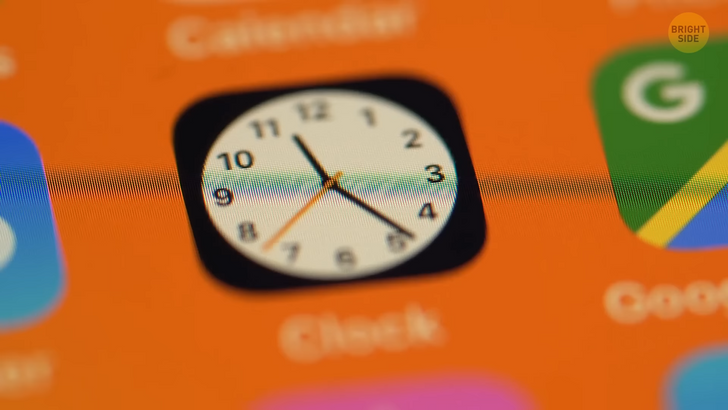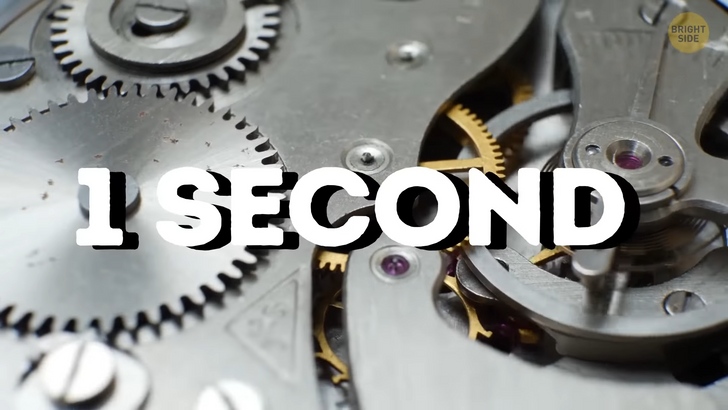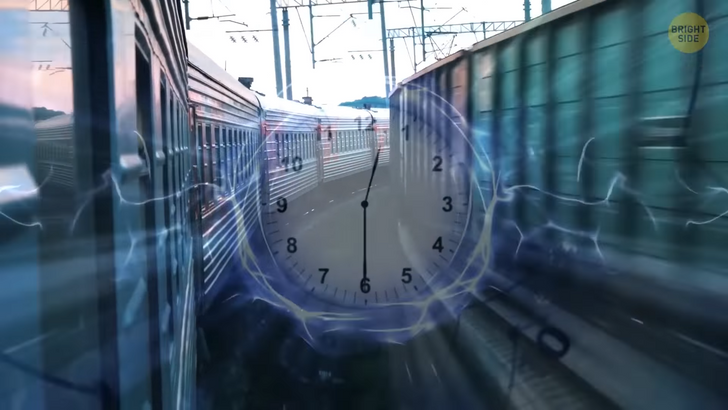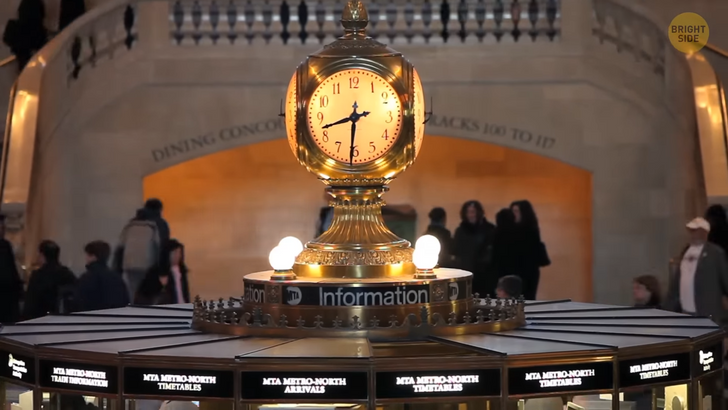16 Stories That Prove Kindness Still Wins in Our Broken World


Hey, if I said “what time is it?”, you’ll probably look at your phone, laptop screen, or wristwatch to find out. But how do these devices know the time? In your devices, the time is set automatically by the program. But how does this program know the exact time? People set up wristwatches before the sale. But then how do these people know the time? (Does anybody really know what time it is? Hey there’s a song there.) Anyway, how do we determine this time, and what happens if all the clocks in the world stop? Wait a minute! Or longer...

So, welcome to the National Physical Laboratory in southwest London. Here you can find some of the world’s most famous atomic clocks called hydrogen masers. There are about 400 such devices around the world, and they help the whole planet navigate through time. All modern technologies, satellites, operating systems, GPS, flight and train schedules, and the TV program on your screen are guided by the atomic clock.
And here’s how they work. Imagine a pendulum. It swings from one side to the other. One swing from left to right or vice versa is a period of time equal to one second. The pendulum is not very accurate, since it’s not constant. Its movement may slow down or accelerate. In atomic clocks, atoms do the function of a pendulum. When they are exposed to microwave radiation, they begin to fluctuate. About 9 billion fluctuations are equal to one second. (Don’t believe me? Count ‘em yourself.) The vibrations of atoms are precise and unchangeable. These clocks are not lagging behind and not accelerating. The error in such a clock can be 1 second once every 10 million years. I can’t wait that long, so I’ll take my word for it.

Atomic clocks guide all modern technologies and communication satellites. And now let’s imagine that, for some reason, they stop working. Atoms no longer react to microwaves. After them, quartz watches and all electronic ones stop. Your phone no longer shows the time, and the arrival time of flights disappears on the information board at the airport. At this moment, all dispatchers contact the pilots and ask them to land urgently at the nearest airports. Further flights become impossible. There are too many planes in the sky. If several start taking off and landing at once at the same airport, it can lead to a disaster. Dispatchers wouldn’t create the correct schedule without clocks.
The same goes for all trains. Train stations can no longer coordinate trips and make switches on railway tracks. This system is too complex and can only work with a precise time. The world is beginning to plunge into complete chaos. The banking system is collapsing. Brokers don’t transfer money to clients’ accounts on time. People can’t get their salaries on schedule. Imagine you promised to send a presentation to a client tomorrow at 2 pm and expect to get paid for it. The next day you don’t know what time it is and send the presentation to the client two hours later. They don’t get the file on time and the deal falls apart.

At large plants and factories, the schedule of the day gets down. People don’t give out the necessary volume of production. Imagine some factory produces 2 tons of processed steel in exactly 8 hours. But the rhythm of work is disrupted, and this reduces the volume. Next, this steel should go to the ship. However, the ship schedules are no longer working either. And this applies to all materials in general — wood, electrical carriers, oil, and metals. Logistic chains collapse because of the stopping of the clock. There’s an economic crisis and panic in the world. The exchange closes and opens every day at different times. Shareholders and investors are losing a lot of money.
Some say that the clock, not the steam engine, was the most important mechanism for the industrial revolution. Steam engines powered cars and ships, but they couldn’t synchronize the work of many people. Under such conditions, you stop rushing anywhere, but so do all other people. You can come to the supermarket, and it will be closed because its owner overslept. But then, when its doors open, you will find that there are almost no goods there. Ships, trains, and trucks couldn’t deliver fruits, bread, and vegetables because they couldn’t agree on the time. Many will leave the big cities, as it will be challenging to live there without clocks.

The age of high technology has ended. TV channels stopped working because some employees were late and didn’t start the broadcast. The channel host came before the operator, but the sound engineer is still sleeping because the alarm clock doesn’t know what time it is. To stop the chaos, two things need to be done. The first is to accept that the former high—tech life will no longer exist. The second thing is to take an example from our ancestors. People lived for thousands of years without knowing the exact time. It has been necessary only since the beginning of the industrial revolution. Before that, people were guided by the sun, the rooster’s singing, and the internal biological clock.
For hundreds of thousands of years, humans used to go to bed at night and wake up in the morning. But with the invention of the light bulb, this order was violated. The industrial era forced humanity to focus not on the internal clock, but on the opening time of factories and plants. Then TV, the Internet, and video games were invented, and the sleep mode established by evolution changed. But in a world without counting time, people will forget about alarm clocks again and start improving their sleep. There will be a sundial in every house. The shadow will guide humanity. Hourglasses of various shapes and sizes will be popular again in the world. Sooner or later, we would have returned to some landmark in time as it was in the past.

For example, in the 19th century, people used hundreds of different time standards. Railway schedules and buses determined each of them. When the number of routes increased, people started sticking to the same time that was set in Greenwich, UK. There was a big mechanical clock that guided the whole country. Greenwich Mean Time or GMT. Merchants, factory directors, and bankers adjusted their watches according to GMT. When all UK trains were timed, the GMT signal was sent across the Atlantic via an underwater cable, straight to Harvard, in Massachusetts. Then, at a special conference in Washington, DC, more than 25 countries recognized Greenwich as the international time standard.
Everything was fine, the technology worked synchronously worldwide, but the problems started. After ten years, scientists realized that the world needed new clocks. It turned out that the Greenwich clock was inaccurate because it was based on the time our planet spent to make one spin around its axis. In the 20th century, people learned that Earth changed its rotation speed over the years. Oh yeah? It accelerates or slows down because of the gravitational influence of the Moon, the Sun, and other planets and because of geological fluctuations inside the Earth’s core. Scientists calculated that in 1900 the Earth rotated four milliseconds slower than at the end of the 21st century. Yes, there are people who watch this kind of stuff.

Therefore, people began to develop other, more accurate clocks — atomic ones that we still use. But the strangest thing is that even these clocks don’t work in the way people need. Their main problem is excessive accuracy. Earth doesn’t constantly rotate the same way, so workers sometimes add additional seconds to the atomic clock or subtract them. And here’s why. Ordinary clocks are based on the rotation of our planet. When the time on such a clock shows morning, it is also morning outside. When the clock shows the late hour, it’s dark outside. Ya with me? Our planet doesn’t rotate at a constant speed, and the atomic clock is perfectly stable. If the world always worked based on these clocks, then time would sooner or later deviate from the actual day and night.
At some point, the sun would begin to rise at 6 pm, and sunset would start by 7 am. To prevent this, timekeepers change the time on atomic clocks slightly. All this is necessary to preserve the usual things for people so that the morning hour on the clock and the street coincide. Well, it’s time for me to make like an atom, and split.











